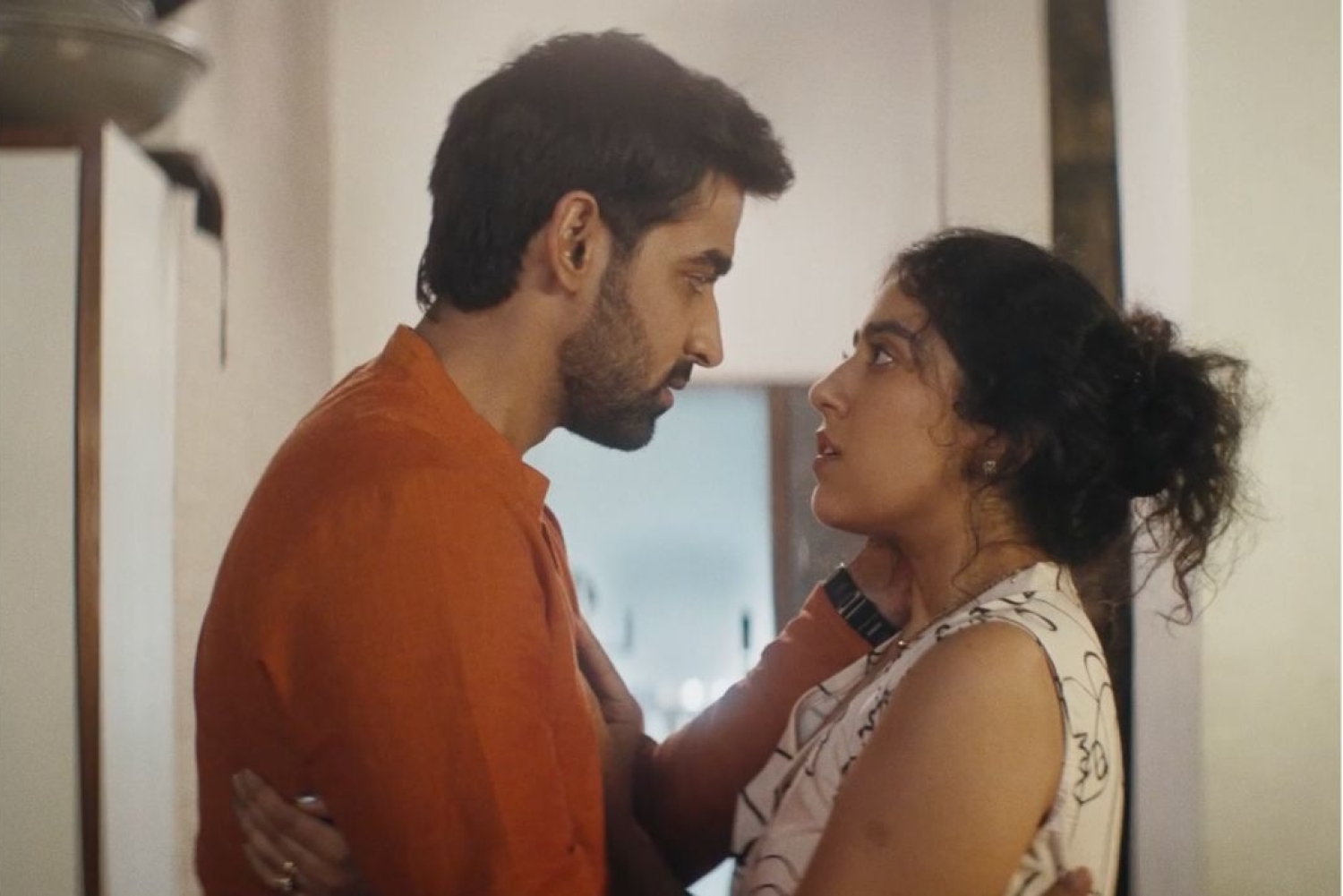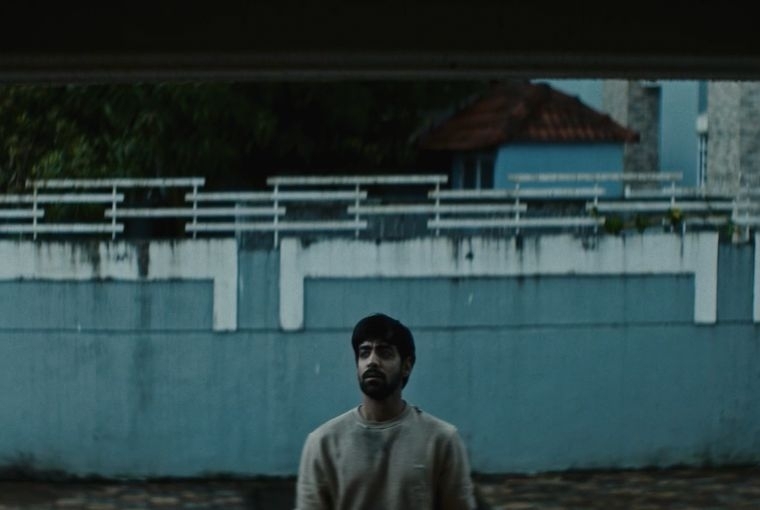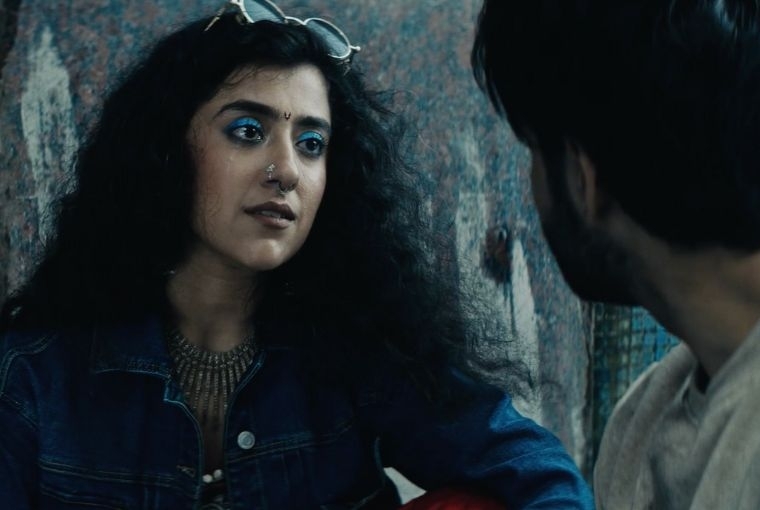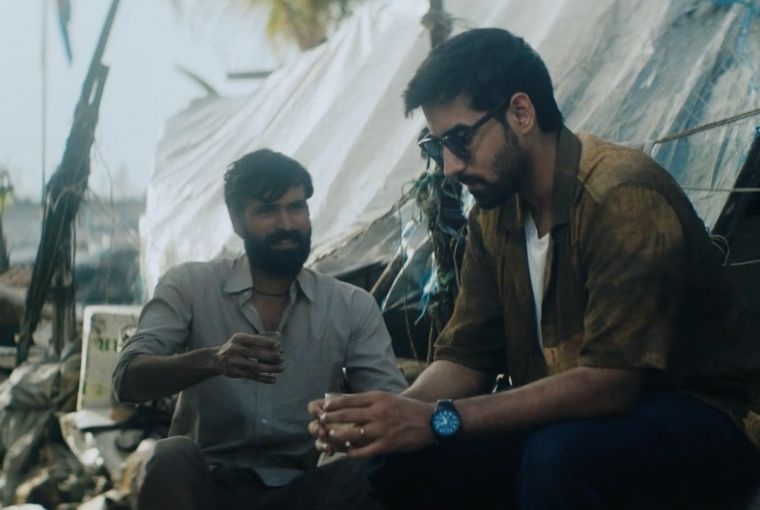

When asked about the initial seeds of Kalyug and its journey, director Atharva Puranik shared that the story had been brewing in his mind for quite some time. It began with the Jamia incident and the surprising fact that Shah Rukh Khan was an alumnus. The influence of that can be seen in the film, where the protagonist, Raj, is a modern-day reimagination of one of Khan’s characters. Originally, the story centered around an actor eating beef, someone taking a photo, posting it online, and chaos ensuing. The script evolved over the course of a year, and as Atharva reflected, the beef narrative no longer felt large enough to justify the film’s scale. He sought something more current, provocative, and rooted in the zeitgeist. Though there was a risk of the subject being alien to an international audience, he believed the film’s core — about power and responsibility — remained universal. As Atharva explained, the story dissects the ideology behind the famous line, ‘With great power…’ prompting viewers to consider whether Raj should stand his ground or yield for what he holds dear. For lead actor Manahar Kumar, Kalyug marked a reconnection with Megha, a fellow film school collaborator and friend. He went through an intense audition process that he described as both intriguing and freeing. During his time with Atharva, he came to understand the filmmaker’s underlying angst — the frustration of not being able to stir change in a dystopian world — filtered through the eyes of a kind and selfless storyteller. The camaraderie between them was effortless, and Manahar immersed himself in Atharva’s ideas and worldviews in order to bring this important story to life. We’re in conversation with Atharva and Manahar about the creation of this film.
The concept of time is quite tricky through the narrative—there’s a lot of back and forth between the present, past, and future. What was the intention behind this choice?
Atharva [Director]: The intention was that the initial linear cut was crap. The final film is way further from the script than you would imagine. It was written as a linear story, which looked good on paper but was an absolute snoozefest on the screen. Hence, the intercutting; it keeps people hooked and is just claustrophobic enough to not let them look at their phones.
Manahar [Lead Actor and Co Producer]: Time isn’t linear, it’s an intricate spider-web. I’m glad we aren't aware as to what setup shall lead to what payoff and most importantly, when. It was tricky as an actor to be conscious of the scenes and the headspace Raj was in, especially in terms of his inter-personal relationships and the environment at a specific time. Moreover, since films aren’t made linearly, it was imperative to be present and a good listener, while being open and letting the ‘reel’ and real environment affect me as ‘Raj.’

A single tweet sets off a chain of confusion and fear. What commentary on social media were you aiming to make with this film?
Atharva: The commentary is actually not on social media, it’s on us as a people. We have collectively sort of adopted a hive mind mentality, wherein there’s a call to arms, and we follow like sheep to the slaughter. It’s kind of like we’re shooting ourselves in the foot and hindering our own growth. A civilization which was just about overcoming its feudalistic nature is given access to the entire knowledge of the world at dirt cheap prices. If you don’t think that’s a recipe for disaster… you’re blind!
Manahar: With great power comes great responsibility. As Uncle Ben put it so succinctly in Spiderman, I believe Kalyug makes one question how we can use our privilege, for the good of humanity, leading to compassion and peace, or stay passive and let the world burn? With the advent of AI and the pace at which things are growing, an alternate reality is closer than ever. It is important to be conscious of the tools that technology is giving humanity, be it with social media or the internet, but it is imperative to remember that we need to use them for a better life, and not become slaves to it.
What kind of prep went into understanding the character of the protagonist?
Manahar: I was always curious about why the people of power, higher on the ladder, are quieter. Raj helped me dive into a mind, with contrasting dilemmas and choices—saving society vs. the love of his life. I realized the stakes become life or death pretty quickly, and it isn’t as simple as that. Raj made me question, how much can one sacrifice and for who… We conducted numerous in-depth and intense workshops before shooting with Nikkie and Aaditya, and Atharva was open to new ideas and directions that helped us build together.

What was the collaborative process between the both of you like?
Atharva: Manahar and I had a bet in terms of how many takes I would do at most. I was being overconfident and saying ‘not more than 4’ and he said ‘at least 7.’ Rest assured, he won that bet and then some. Being a writer/director himself, he has a keen understanding of how to direct actors from behind the camera, which made things a whole lot easier for me. He would not just do his stuff, but would coordinate with the other cast members to help me direct them at times as well. Especially with Nikie [Priya] and Aaditya [Street Goon], who he effortlessly synced up with. I overall had the most fantastic cast I could have hoped for, including Ritesh Saini [Chaiwala] and Nysha Bijlani [Producer]. I think all of the cast brought their A game to the table, which has uplifted the film beyond my imagination.
Manahar: It was effortless from Day 0. There were tough, long shoot days, with obstacles of all kinds, from production to logistical, but it helped lead us to each shot, each moment in the film, that when I look back now, I won’t change a thing. Having premiered at festivals like Chicago South Asian Film Festival, Boston, soon in International Film Festival of South Asia in Toronto, and finally in Mumbai too, at the iconic Yellowstone International Film Festival in November, the film is on its tour, and we’re mere spectators, and curious ears to audiences of all walks of life.

What do you hope for viewers to take away from the film?
Atharva: I want my viewers to understand and enjoy my film, that’s it. What they take away from it is what they want to take away from it, which I will never control.
Manahar: To show up authentically, to speak up honestly, and to be an active protagonist of their lives, taking charge and creating a life filled with grounded peace, joyful laughter, and devotional unity.
Words Neeraja Srinivasan
Date 29-10-2025